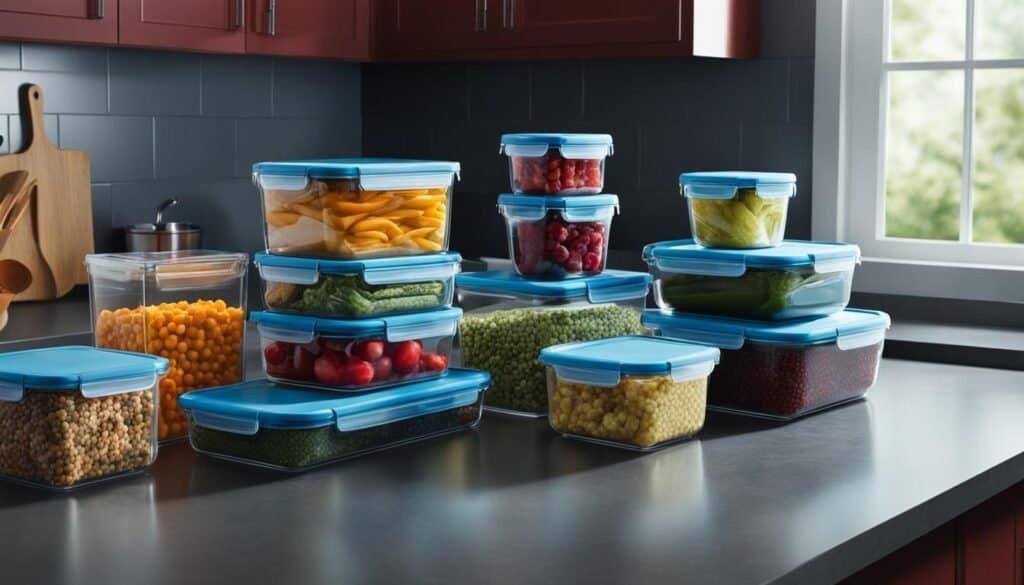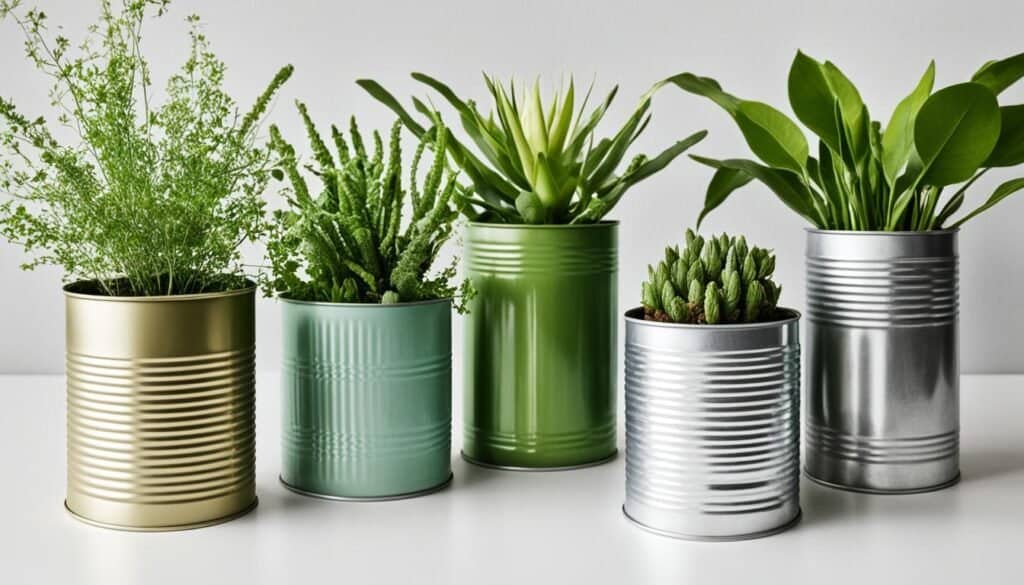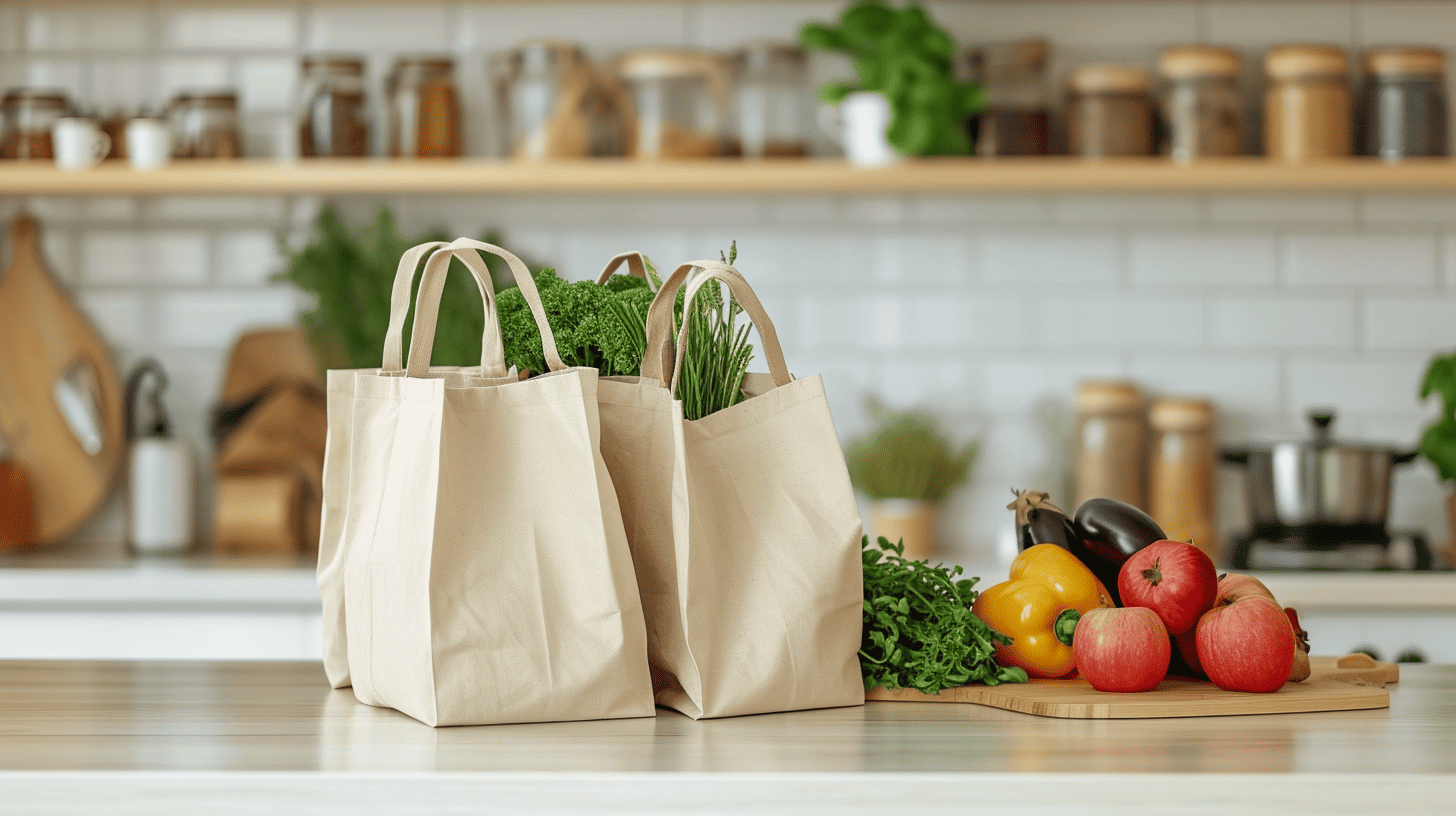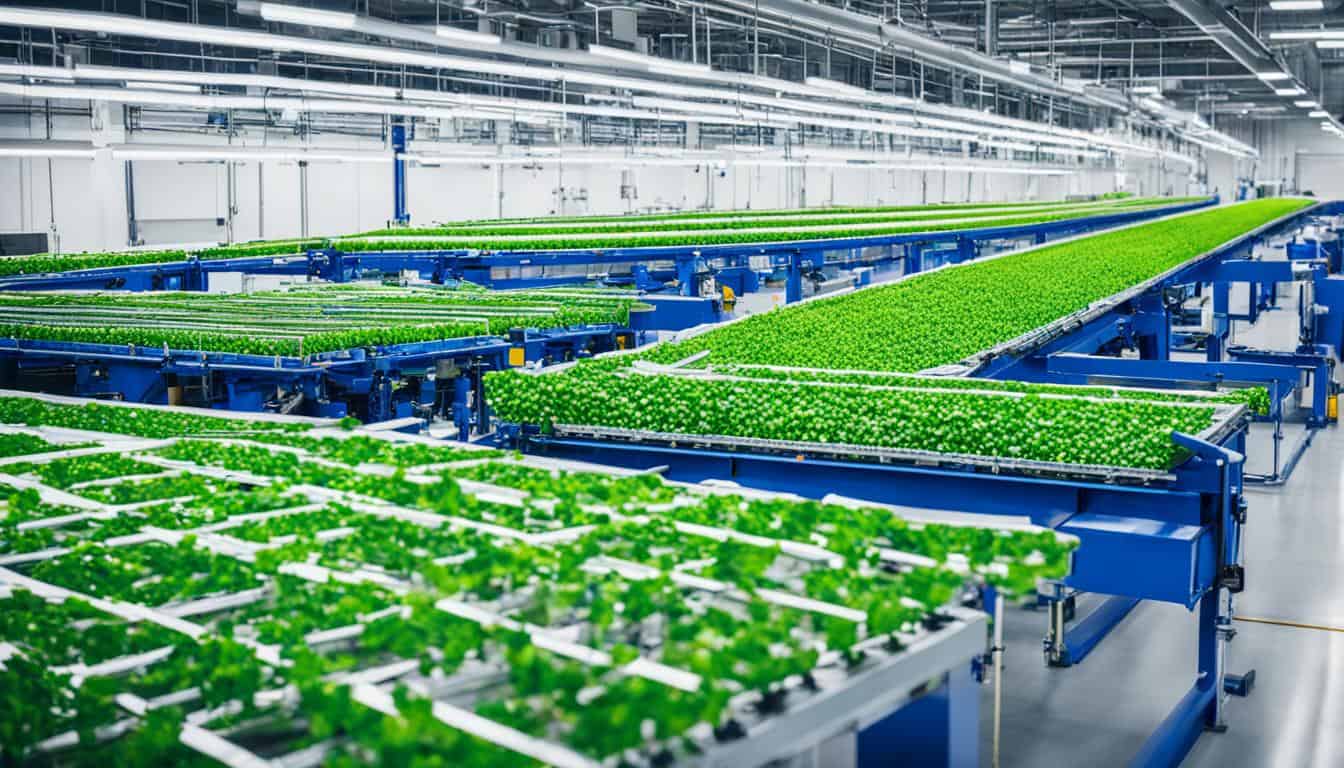As global citizens, each of us holds the power to pave the way for a greener, more sustainable future. By making environmentally friendly choices, we can significantly reduce waste at home and diminish our impact on the environment. One way to achieve this eco-conscious transition is to incorporate eco-friendly products and practices into our daily lives. Whether we aim for a zero waste lifestyle or simply want to reduce waste, the pursuit of sustainability begins with our commitment to change.
Let’s explore how integrating eco-friendly products and adopting sustainable habits can bring about monumental transformations in our living spaces, ultimately contributing to the collective goal of a cleaner, healthier planet.
Key Takeaways
- Adopting an eco-friendly lifestyle is vital for a sustainable future
- Reducing waste at home can significantly reduce our environmental impact
- Embracing eco-friendly products and practices promotes environmentally responsible living
- Working towards a zero waste lifestyle minimizes waste generation and promotes resource conservation
- Every individual’s efforts in waste reduction contribute to the larger goal of preserving our planet
Minimize Waste With Eco Products
As we strive to lessen our impact on the environment, one of the most practical ways to reduce waste starts with conscious purchasing. By opting for environmentally friendly products and sustainable shopping practices, you play an essential role in waste reduction and promote a healthier planet.
Choosing products with minimal or recyclable packaging is crucial to waste minimization. Consider buying in bulk when possible, as this tactic reduces the need for excessive individual packaging. Not only does this help support the local economy, but it also facilitates environmentally responsible behavior.
Implementing sustainable shopping practices extends beyond just the products we buy. Utilizing eco-friendly bags and reusables not only diminishes plastic pollution but also invests in a healthier environment. A simple switch to reusable bags demonstrates a commitment to environmental stewardship and ultimately drives widespread change.
- Conscious purchasing: Align your buying habits with environmental values by selecting products made from recycled materials or featuring reduced packaging.
- Buy in bulk: Purchasing larger quantities of items helps limit unnecessary packaging and supports a more sustainable lifestyle.
- Eco-friendly bags: Replace single-use plastic bags with reusable alternatives, mitigating plastic pollution and eco-conscious living.
Remember, the power of environmental change lies in our collective actions. By incorporating these practices and seeking out environmentally friendly products, we can make a significant impact on waste reduction and contribute to a more sustainable future.
Transforming Daily Habits for a Greener Home
Embracing an eco-friendly alternative for our daily routines contributes significantly to reducing plastic waste and fostering sustainable living. By making mindful choices in the products and packaging we use, we can reduce waste at home, minimize our environmental impact, and promote a cleaner, greener planet. Here, we explore three essential practices for an eco-conscious household: conscious purchasing, bulk buying, and transitioning to reusable bags.
Echoing Sustainability Through Conscious Purchasing
Conscious purchasing entails a deliberate approach to selecting products with reduced or recyclable packaging and those made from recycled materials. Prioritizing eco-friendly alternatives not only helps reduce the waste generated by plastic products and packaging but also encourages sustainable production practices. To ensure sustainable shopping, make a list before going to the store, and focus on reusable products, so you’re always prepared to make environmentally responsible choices.
Maximizing Resource Usage with Bulk Buying
Making bulk purchases is another effective way to minimize shopping waste and lessen our environmental impact. Buying large quantities of non-perishable goods like grains, nuts, and spices not only cuts down on packaging waste but also supports a lifestyle geared towards sustainability. Moreover, bulk buying often results in cost savings, proving beneficial both for the planet and your wallet. Remember to bring reusable bags and containers for a more sustainable shopping experience.
Reducing Plastic Pollution One Bag at a Time
Eliminating single-use plastic and disposable bags from our daily lives is key to combating plastic pollution. Adopting reusable bags promotes responsible consumption and serves as an eco-friendly alternative to plastic bags. Moreover, incorporating reusable bags for groceries, shopping, and even storage around the house can significantly minimize waste and help reduce our society’s reliance on single-use plastics.
To sum up, transforming our daily habits to more sustainable practices is indispensable in our quest for a greener home. By prioritizing conscious purchasing, opting for bulk buys, and utilizing reusable bags, we can significantly decrease our environmental impact and contribute to a cleaner, more sustainable world.
Advancing Kitchen Sustainability

Creating a more sustainable kitchen environment begins with making substantial changes in food storage, waste management, and drinkware practices. By ditching disposables and embracing reusable containers, composting food waste, and adopting eco-friendly beverage choices, we can significantly reduce our household’s environmental impact.
Revolutionizing Food Preservation with Reusables
It’s time to bid farewell to single-use plastics and embrace a sustainable alternative for food preservation. Using BPA-free or glass containers for storage leftovers cuts down on plastic waste and promotes a healthier kitchen environment. These reusable containers help prevent the harmful consequences of plastic pollution while offering a convenient and sustainable way to manage our food storage needs.
Turning Trash into Treasure: The Benefits of Composting
Composting provides an excellent eco-friendly solution for managing food scraps and organic waste at home. By establishing a dedicated compost bin or pile, we can turn our kitchen waste into nutrient-rich compost suitable for gardening purposes. This composting practice effectively aids in reducing household organic waste while fostering a closed-loop eco-cycle in our kitchens.
Savoring Eco-Friendly Beverages with Reusable Drinkware
Choosing reusable water bottles and coffee cups over single-use plastic bottles and disposable cups greatly contributes to the reduction of plastic waste. Bringing our own reusable drinkware promotes eco-friendly beverage choices while saving money and reducing landfill contributions. Let’s embrace kitchen sustainability and make hydration environmental-friendly by ditching single-use plastics once and for all.
Repurposing with Purpose: The Upcycling Revolution

The upcycling movement empowers individuals to give new life to otherwise discarded items through creativity and repurposing. This not only decreases the influx of waste into landfills but also advocates for a circular economy where materials are continuously reused, thereby minimizing the overall environmental impact and carbon footprint. By engaging in eco-friendly practices like upcycling and recycling, ordinary people have the power to make a significant difference in the world around them.
From transforming old clothes into fashionable accessories to giving a new lease of life to worn-out furniture, the possibilities for repurposing are endless. By embracing eco products that promote sustainable consumption and waste reduction, you can actively reduce your carbon footprint while also stimulating the circular economy.
- Turn old t-shirts into reusable grocery bags or rugs.
- Repurpose glass jars as stylish storage containers or planters.
- Give wooden pallets new life as furniture, garden beds, or wall art.
Upcycling not only encourages resourcefulness and creativity, but it also reflects a growing demand for sustainable alternatives in response to the ever-increasing waste crisis that plagues our planet.
“The greatest threat to our planet is the belief that someone else will save it.” – Sir Robert Swan
When you choose to upcycle or repurpose items instead of sending them to the landfill, you take control of your environmental impact and inspire others to do the same. By incorporating upcycling into your daily life, you prove that even small changes can make substantial differences in the quest for a more sustainable world.
Conclusion on Minimize Waste With Eco Products
In the pursuit of a more sustainable future, we must realize the power of our individual actions. As we strive to minimize environmental impact, it is essential that we make environmentally responsible and ethical choices, reducing waste and our environmental footprint. By embracing an eco-friendly lifestyle, we can play a significant role in shaping our world for the better.
Leading Change Through Eco-Friendly Choices
Reducing waste with eco products and cultivating conscious habits, whether in our shopping, our kitchens, or our upcycling efforts, will propel us towards a sustainable lifestyle. Each small yet meaningful change contributes to the bigger picture of preserving our planet for generations to come. As we adapt to a greener lifestyle, we make a positive impact not only within our own households but also on the environment as a whole.
The Collective Impact of Individual Actions
The cumulative effect of our eco-conscious decisions – from minimizing plastic waste to reducing household waste and beyond – resonates profoundly in environmental preservation. Our collective efforts to embrace sustainable ways of living highlight the vital connection between individual impact and enhanced environmental well-being. Ultimately, together we will drive our society towards a healthier, more sustainable world.
FAQ on How To Reduce Waste
Q: What are some eco-friendly products that can help minimize waste?
A: There are several eco-friendly products that can help minimize waste, such as reusable bags, produce bags, stainless steel straws, compostable coffee cups, and eco-friendly cleaning products.
Q: How can I reduce plastic waste in my daily life?
A: You can reduce plastic waste in your daily life by using reusable bags, choosing products with minimal or no plastic packaging, opting for stainless steel or glass straws, and choosing reusable coffee cups.
Q: What are some ways to reduce waste at home?
A: You can reduce waste at home by using cloth napkins instead of paper towels, investing in reusable produce bags, using eco-friendly cleaning products, and replacing single-use items with durable, long-lasting alternatives.
Q: Are there any eco-friendly alternatives to paper towels?
A: Yes, there are eco-friendly alternatives to paper towels, such as cloth napkins, reusable bamboo towels, and compostable kitchen wipes, which not only reduce waste but also save you money in the long run.
Q: How can eco products help me minimize my environmental impact?
A: Eco products can help minimize your environmental impact by reducing the amount of waste you produce, eliminating the use of single-use items, and promoting sustainable shopping practices.
Q: What are some sustainable shopping practices I can adopt to minimize waste?
A: You can adopt sustainable shopping practices by choosing products with minimal packaging, opting for reusable and durable items, selecting eco-friendly cleaning products, and supporting brands that are committed to reducing environmental impact.
Q: How can I minimize waste with eco-friendly cleaning products?
A: You can minimize waste with eco-friendly cleaning products by choosing concentrates that reduce the amount of packaging, using refillable containers, and opting for products that contain natural and biodegradable ingredients.
Q: What are some eco-friendly alternatives to single-use items?
A: Eco-friendly alternatives to single-use items include reusable coffee cups, stainless steel or bamboo straws, cloth produce bags, beeswax wraps, and biodegradable or compostable alternatives for everyday items.
Q: How can I contribute towards a sustainable future through waste reduction?
A: You can contribute towards a sustainable future through waste reduction by finding ways to minimize your environmental footprint, supporting businesses that offer eco-friendly alternatives, and making conscious choices to reduce the amount of waste you generate.
Q: Why should I consider using eco-friendly products to minimize waste?
A: Using eco-friendly products to minimize waste not only helps reduce the impact of plastic waste on the environment, but it also saves resources, supports sustainable practices, and contributes towards a greener, more environmentally friendly lifestyle.





Leave a Reply